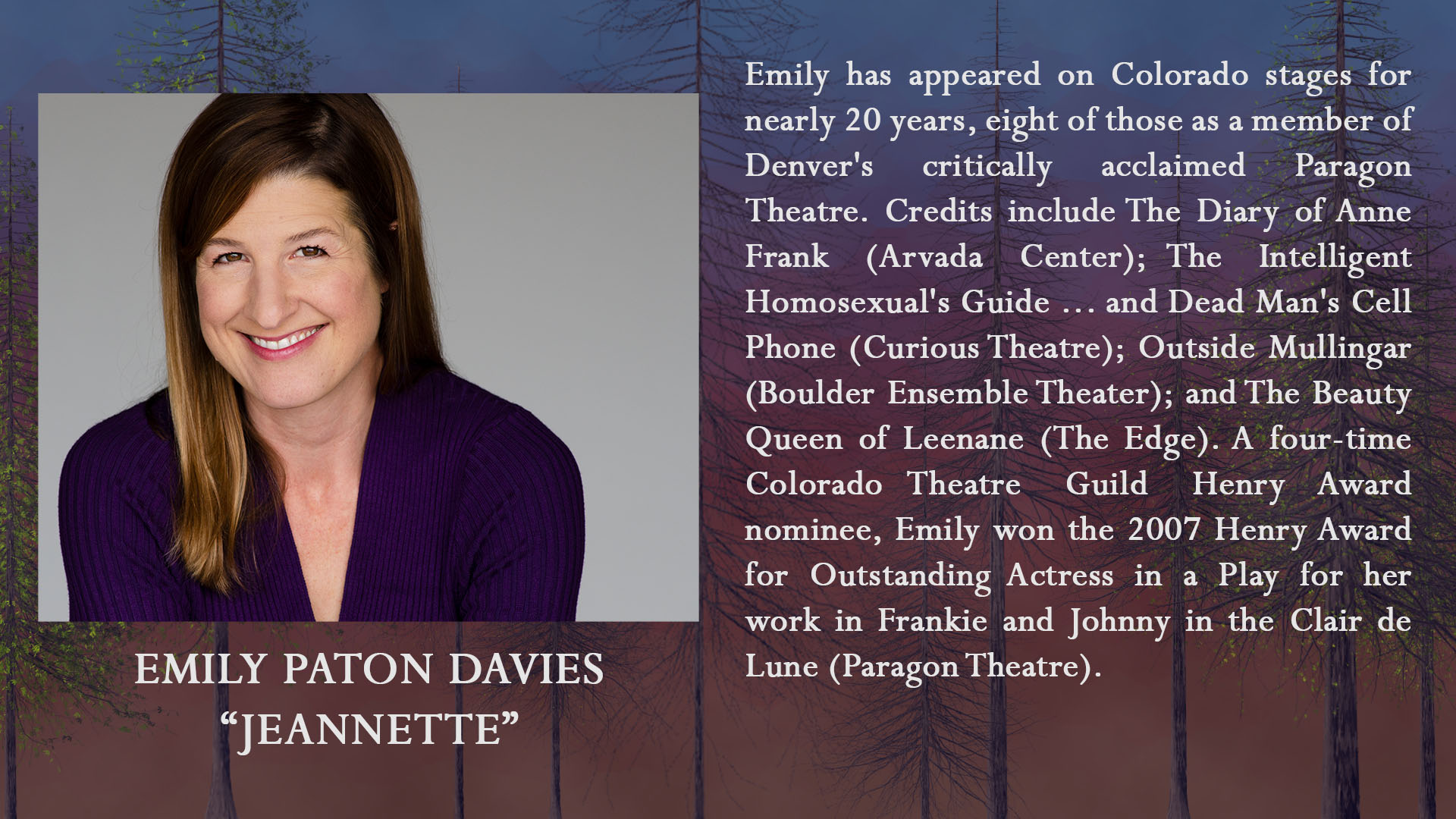CLICK HERE TO PURCHASE TICKETS OR SEE BELOW
Two cousins and their husbands reconnect after each experiences devastating loss, and they discover that their opposing perspectives help them find peace. Filled with compassion, honesty, and humor, this play explores the divide between living, dying, and the freedom to decide your own fate.
Dinah and Bill, a devout, church-going couple from the Midwest, are struggling to keep their lives intact after the loss of their daughter. Dinah is compelled to reconnect with her left-leaning cousin Jeannette and her husband Neil in Northern California, who are going through their own trials. As the couples converge, they learn to heal their wounds through their differences and overcome the grief that haunts them.
See what the critics are saying:
The Quality of Life at Benchmark Offers a Poignant Study of Life and Death
JULIET WITTMAN | SEPTEMBER 23, 2019 | 6:59AM
The Quality of Life, by Emmy-winning writer Jane Anderson, doesn’t make for an easy evening of theater. The play is both intensely serious and intensely sad. But if you’re interested in issues of life, death and meaning, in love with the expressive power of art, and ready to encounter real, breathing and original characters facing crucially important dilemmas, get tickets now to the regional premiere at Benchmark Theatre, a company dedicated to producing intriguing, significant and sometimes boundary-breaking work.
Dinah and Bill are attempting to continue their lives after the horrifying murder of their daughter, though without much success: They’re suffering many of the silences and stumbles that plague couples after a soul-searing loss. He’s withdrawn; she babbles, giggles inappropriately and periodically breaks into tears. The two, who live in Ohio, decide to visit Dinah’s cousin, Jeannette, in northern California. Jeannette is struggling with her own griefs: Her husband, Neil, is dying of cancer. And as if that weren’t sufficient, their mountain home recently burned down, and the two are living in a skeleton of the place, with a large yurt in the middle and a primitive toilet setup.
The cousins are very different and haven’t seen each other in a long time. Jeannette is a poet and a romanticizer. Where Dinah and Bill see a destroyed building, she sees silvery abstract shapes, color, beauty and inspiration. She talks of the little cat who disappeared during the fire with sorrow, but also admiration for the animal’s swift spirit. At first all this is convincing: Jeannette seems so much more sophisticated than brooding Bill and earthbound Dinah; she appears to embody all the wisdom — or ersatz wisdom — you find in those books about discovering strength, joy and spiritual growth in adversity. She and Neil are a deeply loving couple, and he seems to fully accept her view of things.
Perhaps Dinah and Bill, with their newfound, judgmental and still somewhat insecure Christianity, have much to learn from these two. But The Quality of Life isn’t one of those left-versus-right or religion-versus-humanism screeds. The script doesn’t simplify or caricature. Jeannette’s apparent wisdom can feel brittle, and there may be more going on behind Neil’s quiet acquiescence than at first appears. As for the others, perhaps Bill is more human than his preachiness implies, while Dinah is warm and admirably human.
The Quality of Life is about loss and all shades of grief, and when Jeannette learns of the death of her cat —who was making her way home when she died — realization hits and a huge and terrible grief engulfs her.
Neil has decided to ease himself into death at home rather than suffer the final weeks of his illness, and this —along with Jeannette’s response — creates an uneasiness and friction that mirror society’s response to death and dying. It’s a commonplace that ours is a death-avoidant society, but this is clearly changing. There’s now almost universal awareness of the horrors of over-medicalized hospital deaths, and physician-assisted suicide is legal in nine states — one being Colorado, which passed a Medical Aid in Dying bill in 2016. There are also thousands of Death Cafes around the country, in which people gather to share their fears and insights. It’s into these depths of mingled murkiness and clarity that The Quality of Life plunges us — though oddly, aside from a passing mention of pills, there’s no discussion about how Neil actually intends to end his life.
All four actors give fine, generous and revealing performances. You can’t really empathize with Marc Stith’s withdrawn and self-righteously pontificating Bill at first, but over time Stith slowly and subtly reveals the depth of Bill’s feelings. Mark Collins as Neil successfully takes on the difficult task of portraying terminal illness, and does a wonderfully convincing job as a man both sick and conflicted, walking the path that the wife he loves has traced for both of them, but harboring fears and doubts of his own. We really should be able to see a lot more of Emily Paton Davies on local stages. Here she’s created a complex woman who constructs a beautiful world to mask her knowledge that she’s about to endure a loss beyond endurance — only to watch that world shatter like colored glass. Finally, you’d have to be some kind of monster not to love Haley Johnson’s clumsily suffering Dinah, whose brief struggle with chopsticks provides one of the funniest and most poignant moments of a deeply poignant evening.
Warren Sherrill, who directs with intelligence and unsentimental sensitivity, says in his director’s note that he and his family were faced with the decision of whether to remove his father’s life support a little over a year ago. This play, he explains, is about the fact that all of us are mortal — “and we are all scared...and we all need comfort...and, yes...we all die.”
The Quality of Life, presented by Benchmark Theatre through October 6, 1560 Teller Street, Lakewood, benchmarktheatre.com.
Juliet Wittman is an investigative reporter and critic with a passion for theater, literature, social justice and food. She has reviewed theater for Westword for over a decade; for many years, she also reviewed memoirs for the Washington Post. She has won several journalism awards and published essays and short stories in literary magazines. Her novel, Stocker's Kitchen, can be obtained at select local bookstores and on Amazon.
SHOW TIMES AND TICKET INFORMATION
CLICK HERE TO PURCHASE TICKETS OR SEE BELOW
September 13th - October 6, 2019
*No Performance on Friday, October 4, 2019*
Two Acts with One 15 Minute Intermission
Thursday, Friday and Saturday Performances at 8:00pm
Sunday Performances at 6:00pm, except on Sunday, October 6th.
Special 2:00pm matinees on Saturday, September 28th and Sunday, October 6th.
The Bench at 40W located at 1560 Teller Street in Lakewood, CO (map)
Ticket Prices
$30 Regular General Admission
$25 Student/Senior/Veteran
$12 Industry Night on Monday
Half Price Regular General Admission on Thursday Evening Performances
CAST & DIRECTOR





Creative Team
Director: Warren Sherrill
Stage Manager: Connie Flores
Scenic Designer: Brandon Case
Lighting Designer: Jacob Welch
Properties Designer: Andy Bakehouse
Costume and Sound Designer: Rachel Rogers
Assistant Sound Designer and Composer: John Hauser





